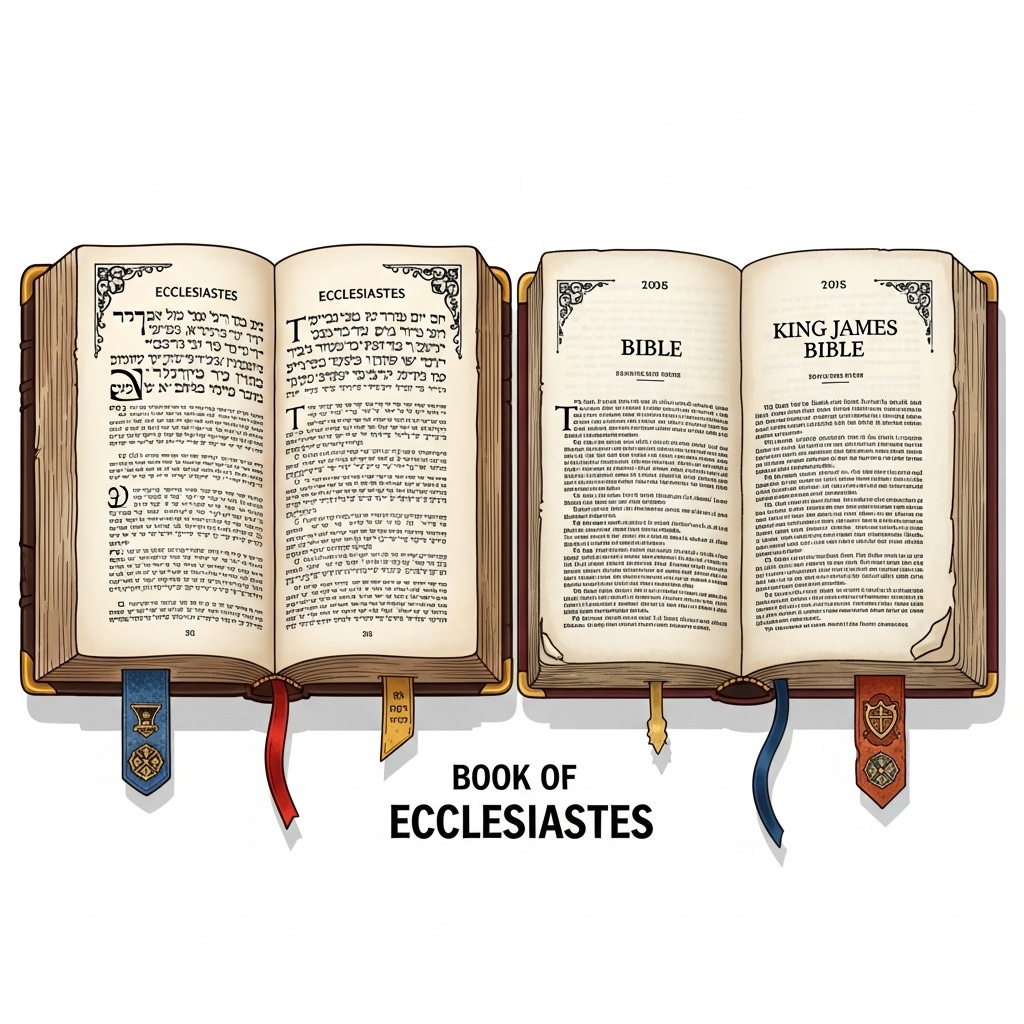The Biblical Book of Ecclesiastes, A Time to Rend, A Time to Sew: The Threads of a Life
Ecclesiastes is part of the Hebrew Bible, also known as the Old Testament. In the Christian Bible, it is the 21st book, located between Proverbs and Song of Solomon. In the Hebrew Bible, it's part of the Ketuvim (Writings).
There is a passage in the Bible that has touched hearts for generations, found in the book of Ecclesiastes. It reads like poetry and truth all at once, a soft but steady voice reminding us that everything has its season. There is a time to be born and a time to die, a time to weep and a time to laugh, a time to rend and a time to sew.
That single line, "a time to rend, and a time to sew," holds something beautiful and eternal. To rend is to tear. It is what we do in mourning, what we feel in heartbreak, what happens when life breaks open and we cannot hold the pieces together. In some traditions, people physically tear their garments when a loved one dies. The rip in the fabric is a visible sign of the tear in the soul.
However, Ecclesiastes reminds us that there is also a time to sow.
Life does not ask us to forget those we have lost. It does not ask us to erase the grief or pretend it never mattered. What it asks is that, when the time is right, we begin to stitch the torn fabric of our lives back together. Not to make it new or untouched, but to make it whole again in a different way.
I have lived through many times of rending. I have lost friends, family, my mother, my grandparents, and most heartbreakingly, my beloved wife. Each loss felt like a new tear in the fabric of my being. And yet I have gone on. I have lived, remembered, spoken their names, cherished their photos, and honored their legacies in the way I try to love and understand others.
This is the mystery and rhythm of life. We go through stages. We do not remain in one chapter forever. My friends and I, now in our eighties, speak openly of being in the final stage of life. And even as we accept that truth, we find ourselves stunned by how vivid the memories of our youth remain and how clearly we remember the joy, the play, the courtship, the music, the noise of children, and the turning of seasons.
Time has passed so quickly, and yet those early days live on inside us as if they just happened.
So it is for all of us.
There is a time to mourn and a time to live again. A time to fall silent in sorrow and a time to tell stories around the table. A time to tear the garment, and a time to take out needle and thread and begin the slow, gentle work of stitching life together again.
This is what it means to be human. And Ecclesiastes, in its timeless voice, reminds us that we are never alone in this rhythm. We are part of something larger. A sacred unfolding. A quiet grace.
And with time, we come to understand something else:
“Happiness lies in being, not in having.” From the writings of Rabbi Jonathan Saks.
Too often, I mistakenly believed that cars, houses, bank money, and other possessions would bring me happiness. I was wrong. Happiness lies in appreciating life, especially because it is so short.
That, too, is part of what Ecclesiastes teaches. The wisdom of the ages lives not in what we own, but in how we live and how we love, in how we mend what has been torn, and how we cherish what remains.







Yes ... acceptance, grief ... ?
Beautifully said. I want to read this everyday. Thank you!